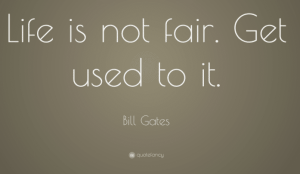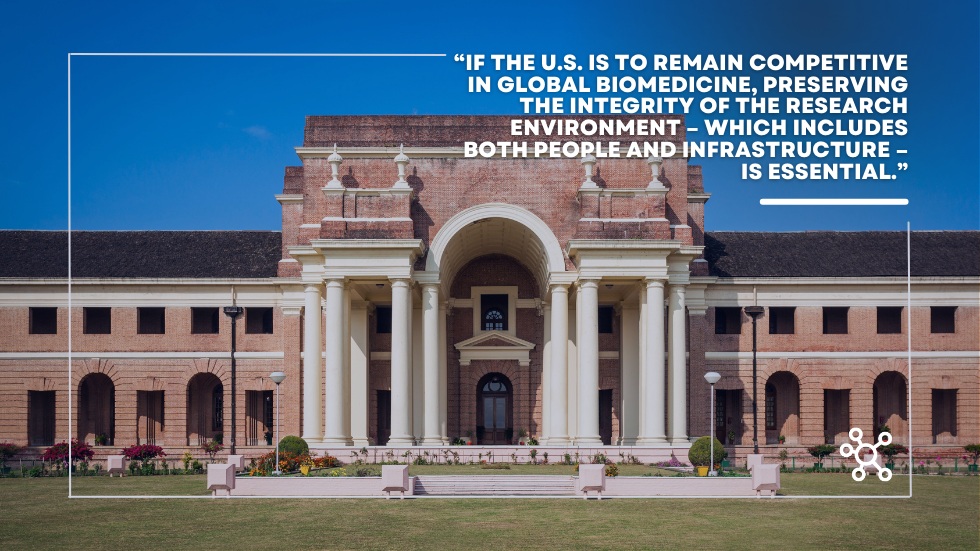Have you ever left an interview for a pharmaceuticals or biotech job position feeling that things went fantastic only to be later informed that you “aren’t a fit.” Worse yet, maybe you were never informed or you heard through the grapevine that a lesser qualified candidate got the position.

…but everything went great!?
Everything seemed to go well. You “connected” with the interviewers, you knew you were well qualified, you followed up with personalized thank you emails.
What happened? What went wrong?
For starters, let’s start by facing the simple fact that life isn’t fair. Nowhere is this more true than in employment and hiring.
The truth is that, the best people don’t always get the job and in general, job interviews are a flawed process of assessing and projecting talent. Most pharmaceutical and biotech interviewers aren’t trained on how to gauge talent. Even if they are, most will spend less than 10 seconds reviewing a resume before interviewing the candidate. This pittance of time is often followed by an emotional rather than logical assessment of a candidate.

get used to it
If it were solely about qualifications and competency, most companies would have workforces that look markedly different. Bestselling author and popular speaker Scott Berkun indicates that most interviewers make instinctive judgments based on biases they’re not aware of. They use back-filling, logic to support an intuitive response they’re in denial about. This lack of self-awareness is not universal but it is pervasive. He feels most job interviews are deeply flawed and unfair experiences.
It isn’t JUST about the interview and just as importantly, not all jobs are created equal. There are behind-the-scene dynamics that determine who will fill the position.
These unadvertised aspects can ultimately determine your odds of success in landing the position.
Below is some of the inside information you probably weren’t privy to:
- The biopharma job was meant for a company insider or a referral but was advertised for good show- you never really had a shot from the beginning. Don’t feel bad, according to interview strategist Lou Adler, 85% of All Jobs are Filled Via Networking confirming that the ol’ boy network is alive and well.
- The biopharma hiring manager wanted a woman or a man and you are of opposite gender.
- The pharmaceutical hiring manager felt threatened by your capability and felt you may outdo him or her. Hiring manager insecurity is an unfortunate yet common problem
- You weren’t subservient enough The hiring manager wants a “yes” man or woman, not an objective thinker.
- Your race your gender your religion your politics your hobbies. If you happen to wear these things on your sleeve you run the risk of not being selected by an individual who may be opposed or prejudiced.
- You were too salesy or self promotional and you may not even realize it. No one likes a blowhard even if they are good at their job.
- superficial reasons: you were late your suit was not up-to-par, your body spray was too strong your hairstyle, your laugh. Some managers can’t get past the little things. These shortsighted people often make poor decisions so no loss here.
- Your social media profiles revealed another side of you that maybe is less palatable in a corporate setting. A deep search can often yield a different you. Make sure you know what is out there.
- There was a budget cut and this position was eliminated. But no one bothered to tell you. Thus it went unfilled.
- Your Salary was too high. If confronted with the salary question, try not to answer . In some states, salary inquiries can’t be asked legally. If you are confronted, it is best to try not to answer directly, perhaps give a range.
- The hiring manager was demoted or there was a re-org and the position went away and no one told you.. Companies and people within them get moved around a lot.
- The position was never real to begin with it is intended for another individual who is in a Green Card Application process ..
- Talent Pipelining. Sometimes jobs are advertised for the sole purpose of attracting future talent and the job is not ready to be filled. In this case you were simply a practice interview.
- Informational purposes. Want to learn how to do something? Watch a Youtube video or better yet invite that person in for an interview and milk him or her for information. This happens more often than most are aware. Some hiring managers will use this disingenuous trick to learn a new skill set or gain additional insights.
- Someone else (perhaps better qualified) demonstrated the requisite passion, and competency with the right blend of ‘Sell’ and humility and you were beat you out.
These are just some of the reasons you didn’t get the job despite a good performance.
Wouldn’t it be nice if there were an odds of success indicator BEFORE you went in for an interview? I mean if you knew your odds of success were 1 in 100 you might want to save your time. In a few of these instances your odds could very well be close to zero and the job simply isn’t real.
Alas, there are some things you can do to improve your odds:

Sometimes the job is a mirage
-
Do your homework upfront with your phone screen
In many instances you can get a sense of how “real” a job is by asking pointed questions before you head into the interview..
How long has the position been open?
If it’s been open a long time, more than a few months, then there is likely some kind of issue and you should be a bit suspicious.
How many candidates have interviewed so far for the biopharma position?
If you are the first interview, expect that there will be a wait involved as seldom is a hire made after only one interview. If there have been numerous interviews find out what the candidates have been lacking. Do you have the special sauce that they don’t?
Have any candidates turned the position down?
If yes, Find out why. Although it is unlikely that you will get a genuine answer, sometimes a hint may emerge. Perhaps they aren’t paying market rate or they have unusually high expectations.
Keep in mind that company may have a history of advertising and not filling positions. If you can try to connect with the hiring manager or an individual from the hiring team before the interview to create some rapport and to get additional info you won’t get from HR. Do as much internet sleuthing about the company as you can but keep in mind that nothing beats first hand information from someone who works there.
2) Don’t be too smart or confident for your own good
In some cases your interview failure can be solely attributed to your style and you may not even be aware of it.. You may have an inflated view of self or you come across as arrogant or boastful.
You may also be sending the wrong signals during your interview. In: his piece, Why Smart People Don’t Get Hired , Maurice Ewing comments on smart people being subject to (cognitive) “bias blindspots”. In other words, they don’t see their mental hangups and, in many instances, are even more subject to bad judgment than others that aren’t nearly as smart or qualified. This could explain why intelligent job seekers may not be making allowance for the cognitive biases that turn employers off and reduce their chances for landing suitable roles.
Try to gain some self-awareness by practicing with friends or family. Make adjustments through this practice and try to imbue the general qualities of employer attraction into your interview.

perceptions can be different from reality
3) Tilt the odds in your favor
Now that you learned whether the job is “real” or not and you know your bias blind spots it’s time to learn how to subtly sell yourself. In her succinct piece How to Convince an Employer to Take a Chance on You, Katie Douthwaite Wolf explains that you need to showcase what sets you apart and to refrain from drawing attention to your lack of skill or experience. While this may seem obvious this needs to be done in the cross section of humility and confidence. Another nuance: You often interview best when you have nothing to lose as in you are comfortable in your current role and aren’t actively considering a change. People want what they can’t have so for this reason alone you will be more attractive as a candidate.
Luck will alway play into the equation but you can make your own luck by being a discerning and self-improving interviewer. When faced with rejection, don’t let negativity take over. and don’t give up. Move forward and look up, and consider that some jobs were never meant to be!





